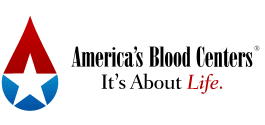File Under the Heading of “No Good Deed Goes Unpunished”
AABB recently publishedStandardsand an Association Bulletin describing its expectations for transfusion-related acute lung injury (TRALI) mitigation. They require whole blood and plasma for transfusion to come from donors who are unlikely to be alloimmunized to human leukocyte antigens (HLA), which have been associated with the risk of this transfusion reaction. It is a good bet that in the future, these expectations will expand to include apheresis platelet donors. A common approach to meet theStandardsis screening donors at risk for alloimmunization for HLA antibodies using any of a variety of test kits. During recent Clinical Laboratory Improvement Amendments (CLIA) inspections of blood establishments, certain laboratories have been cited when testing for HLA antibodies because they are not CLIA-certified in the specialty of histocompatibility. At AABB's request, CLIA has reviewed the issue and is maintaining this interpretation; so it is reasonable to expect more such citations. In response to AABB's inquiry, CLIA representatives said:
"We believe the rationale for testing blood donors is consistent with other CLIA determinations; that is, it is performed to avoid incompatibilities between blood donors and blood recipients. In the case of suspected TRALI reactions, it is performed as part of a work-up to diagnose transfusion reactions caused by TRALI. Laboratories performing such HLA testing must be CLIA certified in the specialty of histocompatibility."(seeAABB Weekly Report, 3/7/14)
Let's ignore whether or not this sort of product safety testing, as opposed to clinical diagnosis, should be under the purview of CLIA (different fight) - just assume they have jurisdiction. Then wealmostagree with the statement, except in this context, the testing is more appropriately called "immunohematology" than "histocompatibility." The former is what we do thousands daily, often using methods of greater complexity than HLA antibody testing, to solve vexing donor and patient problems with unexpected antibodies. The latter is the domain of transplantation, not transfusion medicine. The fact that two disciplines may test for the same analyte for different indications is not a rationale, in and of itself, to "over-regulate" one of them.
A requirement for further certification in blood centers is medically unneeded, can delay the implementation of a very straightforward patient safety initiative, and will consume time and money we can use better elsewhere in our laboratories. ABC, AABB, and the American Red Cross are working to identify an approach that will be acceptable to the Centers for Medicare & Medicaid Services and Food and Drug Administration to allow facilities to test for HLA without a need for certification by another accrediting body.
Louis Katz, MD, Executive Vice President, Scientific, Medical, Technical, Quality, and Regulatory; [email protected]
Posted: 03/14/2014 | By: Louis Katz, MD; Executive Vice President SMT | Permalink
< Back to list






